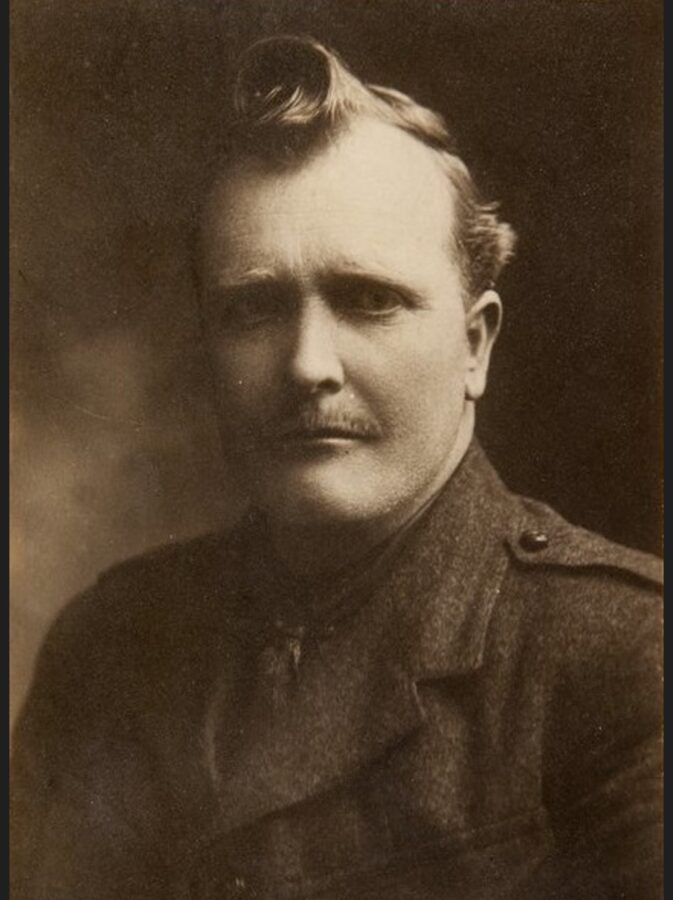
Kieran’s Our City, Our Town Article,
Cork Independent, 15 December 2022
Journeys to an Irish Free State: Assassinations and Executions
On 7 December 1922 Ballinadee born Sean Hales (1880–1922) TD and Member of the Commission of Agriculture was assasinated in Dublin. It came on the back of orders from Liam Lynch that Republican gunmen assassinate all deputies and senators who voted for the Public Safety Act (on 28 September 1922). Such an act created military courts with the authority to enforce the death penalty.
The Dictionary of Irish Biography describes that from an early age Seán Hales participated in the Republican movement. He became captain of the Ballinadee volunteer company in 1916. After the 1916 rising he was imprisoned for a time in Frongoch internment camp in Wales. After his release and some time at home, Seán became a leading local Sinn Féin volunteer. With his family, he also played a prominent part with the anti-landlord Unpurchased Tenants’ Association and anti-British Bandon People’s Food Committee. The local Sinn Féin cumann soon took over the Southern Star newspaper and Seán was a member of the new board of directors.
In 1919 Seán became battalion commander of the first (Bandon) battalion Cork no. 3 with successful manoeuvres in Timoleague, Brinny and at Newcestown Cross.
Arising from his successful ambushes in 1920 Seán became section commander of the West Cork flying column. He participated in the Crossbarry Ambush on 19 March 1921.
In reprisal for the burning of the Hales home in March 1921, Seán commandeered a contingent of Volunteers and burned Castle Bernard, the residence of the earl of Bandon. He held Lord Bandon hostage until General Strickland backed down on executing volunteers in Cork prison. The ploy paid off and the policy in executing prisoners in the Cork area ended.
In June 1920, Seán was elected to the Bandon county electoral area. In May 2021, he was nominated to Dáil Éireann as a Sinn Féin candidate in the May 1921 elections.
Seán was the only Cork brigadier to support the treaty and was elected in June 1922 as a coalition treaty candidate for Cork mid, north, south, south-east and west. During the Civil War he headed up the removal of anti-treaty forces from Skibbereen, Clonakilty, and Bandon. He was appointed to the commission of agriculture in October 1922.
Following Seán’s assassination on 7 December, his requiem mass on 11 December was held at Cork’s North Cathedral. The Cork Examiner reports that the coffin on a catafalque was draped in the tricolour, with the Brigadier’s cap placed on it. Around it was a guard of honour. Nearby knelt officers participating as chief mourners of the army. At the foot of the coffin stood three members of the National Army with arms reversed. In the nave of the church a big detachment of troops assisted at the Mass. At the Consecration a bugler from the gallery sounded the salute and Last Post.
After the funeral, Seán’s coffin was placed on the bier. Troops with two bands, brass and reed and pipers, passed down to John Redmond Street. The procession then headed towards Victoria Cross. Here a motor ambulance waited to bear the remains from there to the family burial place at St Patrick’s cemetery, Bandon. On 19 January 1930, a life-size commemorative statue was unveiled in Seán’s honour at Bank (latterly Seán Hales) Place, Bandon.
Seán’s assassination on 7 December was a major catalyst in the escalation nationally of the Civil War. On 8 December 1922, in retaliation for Sean’s assassination, the Irish Free State government ordered the execution, without trial, four prominent anti-treaty prisoners, Richard Barrett, Joseph McKelvey, Liam Mellows and Rory O’Connor. The Dictionary of Irish Biography has detailed descriptions of all four individuals.
Ballineen born Richard Barrett (1889-1922) was a quartermaster of Cork No. 3 Brigade, becoming a vital part in the war of Independence in the south and west. A steadfast anti-treatyite, he became assistant quartermaster-general to Liam Mellows, and was stationed in the Four Courts Dublin in June 1922. Arrested on 30 June, he was taken to Mountjoy prison, where as part of the prisoners’ jail council he attempted several escape attempts but with no success.
Tyrone-born Joseph McKelvey (1898-1922) was selected as commandant of the 3rd Northern Division of the IRA in 1921. Initially he supported the Anglo–Irish treaty, but after the creation of the anti-treaty IRA executive (April 1922) he departed his divisional post and was became assistant chief of staff of the anti-treaty IRA. After the surrender of Dublin’s Four Courts on 30 June 1922, Joseph was arrested and jailed in Mountjoy.
Lancashire born Liam Mellows (1892-1922) was raised across Wexford, Dublin and Cork. He was educated in Cork at the military school in Wellington Barracks and lived for a time on St Joseph’s Terrace, Ballyhooley Road. In 1918 he was elected MP for Galway East and for Meath and on his return was appointed to the staff as director of arms purchases at IRA Headquarters.
Dublin born Rory O’Connor (1883-1922) was clerk of Dáil Éireann during its underground sessions of 1919. He operated in the engineering section of the Dáil Éireann department of local government and assisted in the control of food supplies. In the early months of 1922 O’Connor was the principal promoter in the group of high-ranking IRA officers who opposed the Anglo–Irish treaty. He was elected chairman of the acting military council established by the dissidents.
Celebrating Cork (2022, Amberley Publishing) by Kieran McCarthy is now available is now available in any good bookshop.
Captions:
1181a. Seán Hales, c.1920 (source: Cork City Library).
1181b. Liam Mellows, Rory O’Connor, Joe McKelvey & Richard Barrett (source: Cork City Library).
